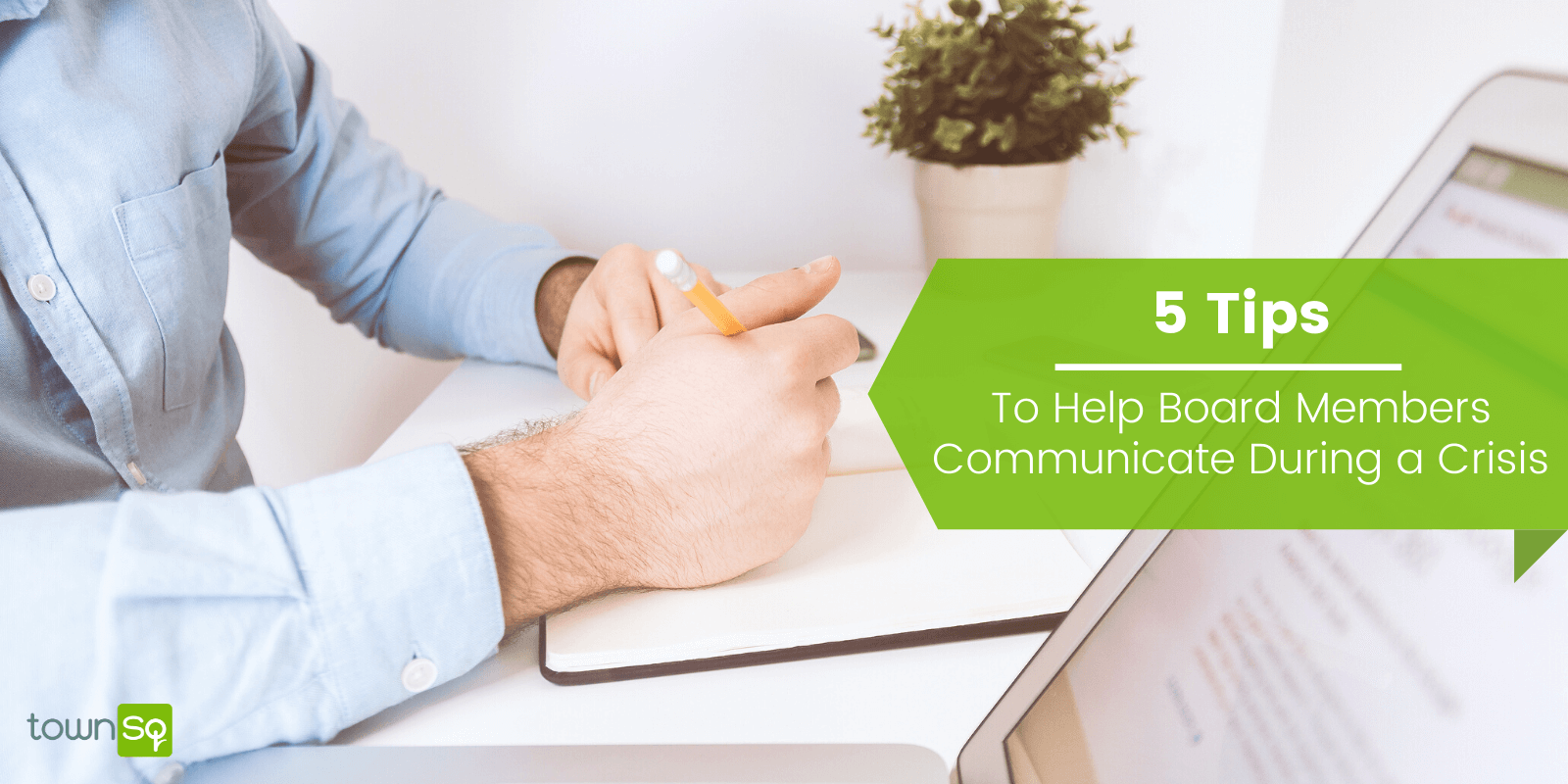How to Combat 5 Issues you Face when Dealing with Resale Documents
Read More



Crises demand leadership, and leadership can often be a demanding and challenging task. As a board member of your HOA, a crisis, whether a national, state, or local one, can require you to elevate your leadership role to another level. One of the most important tools in being that type of responsible leader is being a great communicator as well. Communication is hard for all of us, especially in a time of need. It isn’t always easy trying to figure out what, when, and how to say the things the members of your community need to hear in times of crisis, but effective communication between you and the residents you preside over could not only keep them informed, but keep them safe. The question remains, however, how, as a board member, do you become a better communicator? Let’s take look at some easy tips for improving such a necessary skill:
This tip might feel like a no-brainer, but clarity and directness when speaking with others are too essential to take for granted. Residents of your community aren’t going to want information thrown at them sloppily; they’re going to look to you to be transparent, concise, and unmediated all at the same time. However, how does that look during a crisis, specifically? It can be as simple as, when a resident inquires through an email or phone call about HOA guidelines that might change during a crisis, being able to answer their inquiry within 24 hours with specifics for that issue. It could also be posting clear signage for all amenities that might be altered during a crisis, such a change in hours or usage, so that residents never feel left in the dark.
You can download here a Free Community Template Package to print and use in your community if needed.
No matter what type of communication it may be with your community, whether written or verbal, keeping clarity and directness at the forefront of every message can establish a productive relationship with your residents in a time of need.
Whether it’s in regards to amenities closures, potential billing changes, or even changes in the hours residents can contact board members, consistency with enforcing a new set of rules during a crisis is as important as establishing the rules to begin with. Let’s take the COVID-19 as an example. Consistent rule enforcement with public amenities like a community pool, or with restrictions on the size of any neighborhood events, can make or break your residents’ safety, and continually reiterating those rules until such a crisis is over isn’t something board members can take lightly. Not all crises will be on equal levels of severity, but what you can guarantee is that all crises could affect either the physical or financial safety of your community, and being able to formulate steady and manageable rules for how your residents should conduct themselves is vital.
Whether it’s through an online newsletter, a community website, or a specialized app for communities and HOAs, a crisis happening within or around your community is going to require you to get information to your residents daily, updating them on how you plan to keep them as informed and safe as possible throughout the entirety of the ordeal. In most cases, weekly updates on items like amenities maintenance or communal restrictions could suffice. However, in a crisis, information is too fluid and too unpredictable to allow that much time in between connecting your residents to the information they will need. If your community has a website, designate a spot where residents can find all the information and resources they may need. If not, formulating a daily email blast with a rundown of all the potential information they may need could be a useful strategy. Each community might be different with how board members and residents alike prefer to receive information. The key is recognizing what that outlet is, and utilizing it as often as possible.
One easy way to bog down communication with your residents is for every board member to step in and assume control at the same time. Instead, what your HOA can do is designate a few individuals, based on the size of your community, to handle frontline communications with residents. Whether that includes responding to emails, creating the daily updates for residents to see, or managing the aforementioned rule enforcements, clarifying who among your fellow board members has which responsibilities prevents your residents from any confusion on who to turn to for information during a crisis.
Even though these other steps can be easy to understand, that doesn’t always mean implementing them into action is that simple. Sometimes, reaching out to a third-party resource can help to streamline communications between board members, residents, and even the management companies that may be involved as well. Sometimes, it can be as simple as using an HOA app such as TownSq to simplify the communications process, and that’s only one resource out of potentially several that could help alleviate the burden every board member could have to face in a time of crisis.These five tips aren’t the only ways in which board members can improve their communication skills, but they’re at the very least a starting point to sharpening your skills on behalf of your residents.